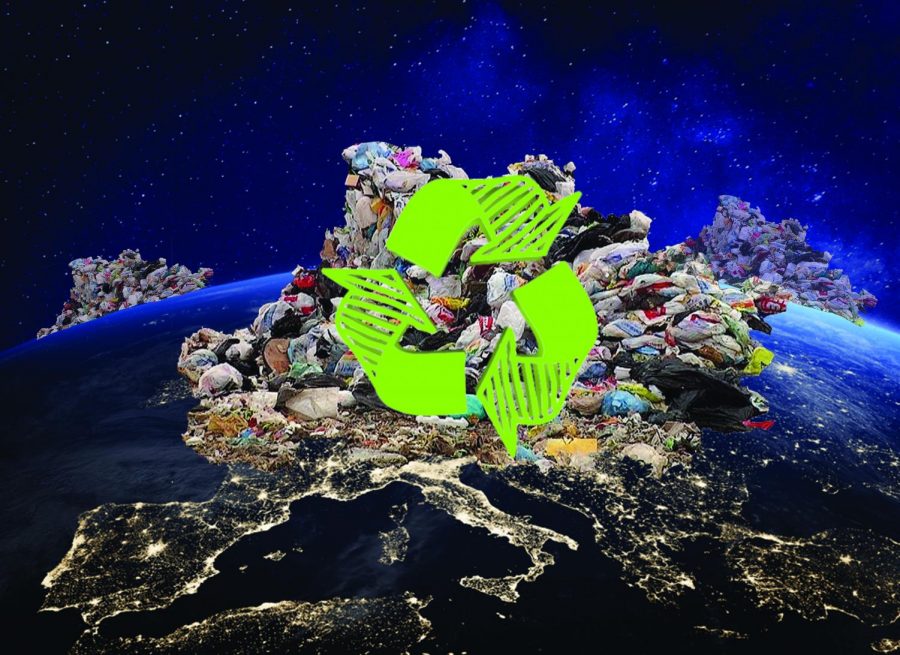The Failure of Reduce, Reuse Recycle
The unfortunate and ugly truth about recycling and reducing waste.
we have no choice left but to recycle
We all know that there’s a pandemic going around, but I’m not talking about COVID-19. What I’m talking about is our waste problem. Our oceans are dying from pollution and trash dumps. Our air is getting polluted from dangerous toxins. We need solutions to these problems, and we need them now. For generations, children have been taught to reduce, reuse and recycle, but in recent years recycling has caused a bigger global headache than coronavirus relief.
Recycling seems like a great and logical way to support the environment and stimulate the economy. But the honest truth is that recycling is doing the opposite. It’s failing us and the planet.
A city municipality paying for recycling services is more expensive than you think. The city has to pay for plants, trucks, workers, and maintenance of recycling plants, and the cost adds up quickly. For manufacturers, using recycled plastic is triple the cost of new plastic. Many counties, cities, and a few corporations across the U.S. have actually stopped or reduced recycling programs due to the cost. In 2019, Phenix City, Alabama stopped accepting plastic recycling altogether.
The process of breaking down plastics is not only expensive but intricate and complicated. What most people don’t realize is that there are so many different types of recyclable plastics, each with a different consistency. While some are easy to break down, others take double or triple the time and resources to reuse. To reduce costs, some counties are forced to stop breaking down certain plastics, leaving them for the landfill or resorting to burning them themselves. According to research by the American Association of the Advancement of Science, only 9% of discarded plastics are recycled.
It’s much more cost-effective to sell recycled plastics, and up until 2018, China bought the majority of the world’s recycling (estimates say around seven million tonnes). The majority of plastic in the U.S. and Europe were shipped to China to be recycled.
But that all changed when China banned imports of recycling, called the National Sword Policy. According to research done by Visual Capitalist, plastic imports fell from over 500,000 tonnes to just under 24,000 tonnes. Other countries followed suits, such as Vietnam, Sri Lanka, and Malaysia. With nowhere to go, these containers full of recycling end up in storage (The Guardian estimates more than 19,000 shipping containers in the U.S. alone), stockpiling until another solution comes up.
The worst outcome of these stockpiles is that these shipping containers will eventually get sent to third world countries. They’ll get dumped on the shores, on land, or in the ocean. It’s true that our trash stacks up in other countries, and those in poverty will sort through it to try and find things to sell for profit. Someone in a third world country has a high chance of being infected with a serious virus or disease digging through the trash. In one state in Malaysia, over 4,000 people developed mysterious illnesses due to toxic waste dumping two years ago. Our trash is not only killing our environment here in the United States but other human beings in other countries. That’s the most devastating fact of our waste crisis, in trying to be stewards of the earth, we’re also endangering other’s lives.
Recycling hasn’t been a total failure, the way that it’s been implemented has caused more problems than solved. Something has to change, whether that means a new solution or revamping the recycling program completely. If you’re passionate about making a difference, take the concept of recycling seriously. Reuse as much as you can, don’t just sort your trash. Do your research, be aware of the best steps you can take to reduce your trash. Or if you’re up to the challenge, start putting your brain to work to come up with a solution to the waste pandemic. The solution is out there, we’ve just got to find it.




